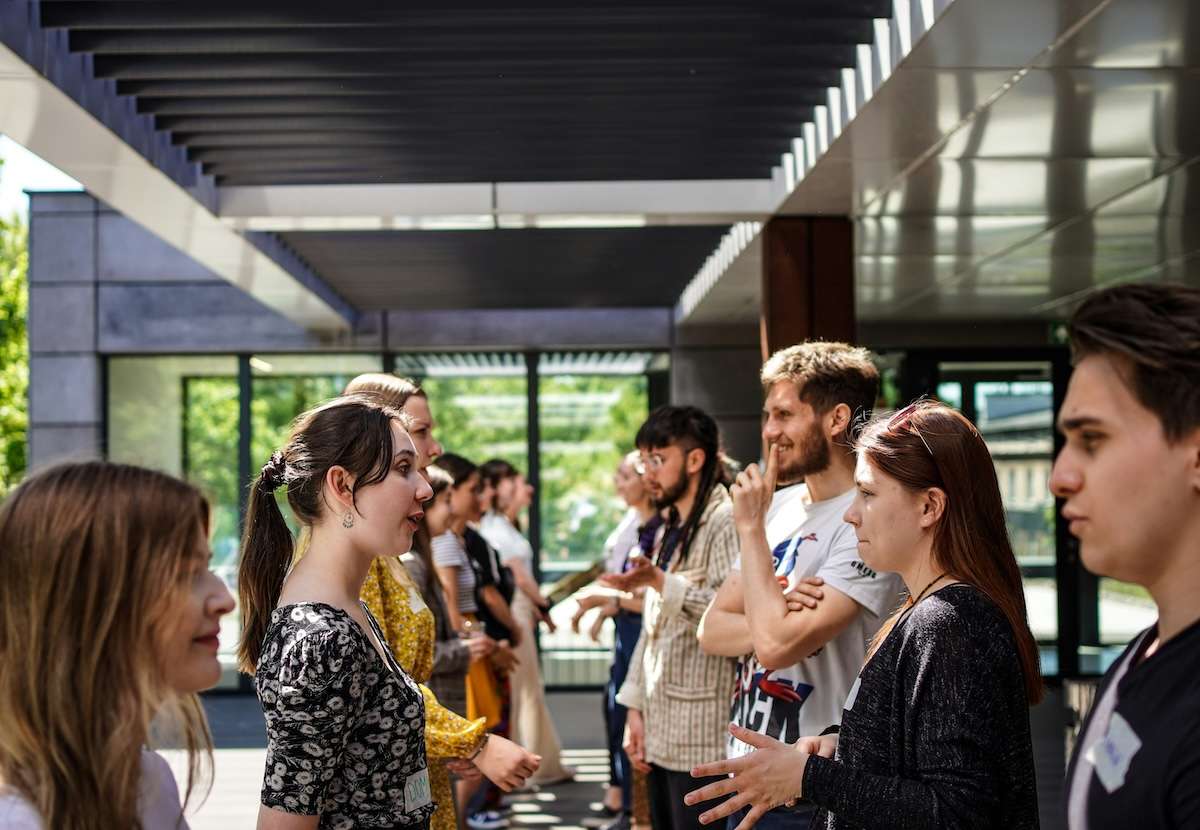
Recently, the honorable Wang Yi, foreign minister of the People’s Republic of China, quoted some short verses from one of the martial arts classics, “Yi Tian Tu Long Ji (倚天屠龍記),” from renowned author Jin Yong (金庸), and it went viral even for the AI arena because he mentioned DeepSeek as a possible translation tool for such verses. So, as communicators, what should we know about translation, and how serious should we be when it comes to translating between languages? Can we rely on AI?
As a philosopher with an interest in history, philosophy, languages, and literature since I was young, I studied independently the likes of the Rigveda (in Sanskrit), the entire Mahayana Tripitaka (大藏經 in classical Chinese), quite a bit of the Tibetan Vajrayana text (in Tibetan), many of the Chinese classics including the Laozu Tao Te Ching (老子道德經), Confucian Analects (孔子論語), as well as many of the “fun” reads such as “Yi Tian Tu Long Ji (倚天屠龍記),” among tons of others, all in their classical languages before I was 19. Subsequently, in my forties, I continued my journey of studying history and philosophy and covered more ground to include Orthodox Christianity and Islam. If you want to learn about humanity, these classics lend much wisdom and insight into how we humans interacted with one another.
And, as a C-suite strategist and communication consultant for more than 3 decades for multinational clients for their successful expansion into Asia Pacific, I am also often leading public relations (PR) retained programs, crisis communication, media coaching for executives, and other marketing and branding programs. One small component within all these consulting areas is translation, of course.
Contextual translation is key
To properly translate many of our clients’ technical texts into something that everyone can read and understand, and sometimes into languages such as Chinese, it is not possible to simply use AI or digital translation tools such as Google or DeepL and be done with it. We need to understand the context and nuances behind those texts and then dissect them down, sometimes changing the texts to something that is contextually correct and true to the spirit of the original words, but not necessarily a facsimile of the original language. In short, we translate texts for their meaning, preserving their meaning, rather than literally matching word for word and then losing the original meaning.
How do online translations fare?
So, let’s have a bit of fun with that now-viral passage the honorable Wang Yi quoted:
他強任他強,清風拂山崗;他橫任他橫,明月照大江。
Remember, although none of the online translators was perfect, we need to understand that Chinese is one of the most sophisticated languages on earth and, especially in poetry, becomes exceptionally difficult to translate well.
I know firsthand as a lyricist and music producer, having written and produced some songs in English and Chinese (and some other languages). It was impossible to translate well-formed 8-character Chinese verses in perfect rhymes into reasonably short English sentences (or parts) that still rhyme and retain the same meaning. Try it yourself, and you will understand.
OK, here goes:
Google Web Translate:
If he is strong, he will be strong, and the breeze will blow on the mountains; if he is allowed to be horizontal, the bright moon will shine on the river.
Google Translate:
No matter how strong he is, the breeze will blow across the hills; no matter how arrogant he is, the bright moon will shine across the river.
DeepL Translate:
Let him be strong, and the wind will blow over the mountains; let him be horizontal, and the moon will shine over the river.
DeepSeek Translate:
Let him be strong; the breeze brushes the mountain ridges; let him be fierce; the bright moon shines upon the great river.
My contextual interpretation
他強任他強,清風拂山崗;他橫任他橫,明月照大江。
If he is strong, let him be, for the breeze will whisk even mountains; if he is unruly, let him be, for the full moon will illuminate even the longest river.
Why did I translate this way?
The Chinese word “任” means “let,” and so in my professional opinion, DeepL and DeepSeek fared better in lending that meaning to their interpretations.
And the original meaning of the wind and the mountain’s relationship was, in my opinion, a bit of Tao Te Jing’s concept of harmony and innate strength, where strength need not be might, but one of relentless gentility. So, the translations from Google (any form), DeepL, and DeepSeek did not interpret this relationship. I chose the word “whisk” because, like how we whisk an egg into a form we can use and mold, likewise, the gentle wind whisks even a stoic mountain with its own quiet strength.
The Chinese word “橫,” as with many Chinese words, can have multiple meanings, including when used in different word combinations. But in this verse, it would be more along the concept of “橫行霸道.” So certainly Google’s Web Translate and DeepL both failed by translating literally as “horizontal,” completely losing the original intended meaning. Google Translate chose to translate “橫” as “arrogant,” while DeepSeek translated it as “fierce,” both losing part of the meaning of the author’s original meaning. Taking “橫行霸道.” as the basis, the closest single-word translation might be “unruly.”
All 4 translators translated the word “照” as “shine,” although that diminishes or dilutes the original meaning of how the full moon’s light will cover even a very large river. When it is a full moon and it can be seen, it is the deep of night. Most rivers are never pristine and clear but are murky and dirty. So, the original meaning would be that a full moon would illuminate even a large murky river in the deep of night, exposing its murkiness with its penetrating light.
Succeed in Asia with cultural sensitivity and expertise
If you are a business that recognizes the vast business opportunities the Asia Pacific provides and wants to expand into this region with a retained communications and marketing program, the wise way is to work with a team that is deeply entrenched in this region, with decades of field-proven business, industry, and media experience. Visit https://mcgallen.com or talk to us today.
Addendum: Music and language
Here are some songs I produced, showing that while translating texts can be complex and challenging, writing songs across different languages might be even more so.
###

